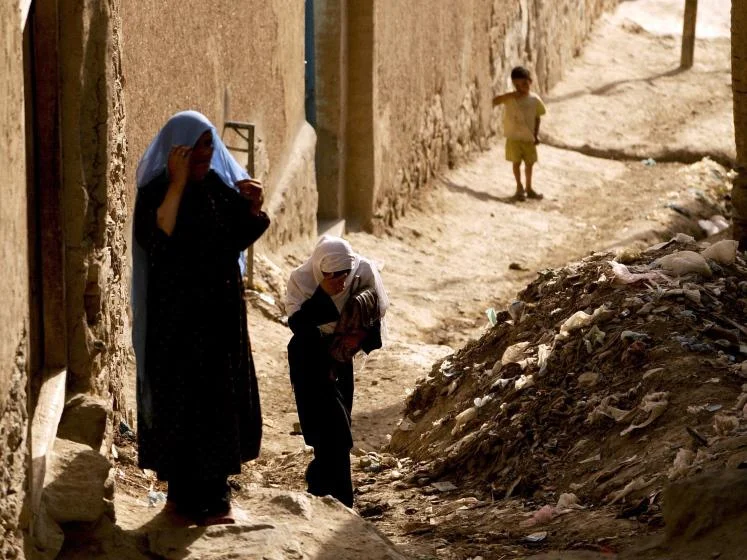New approach needed for fragile states

Greater attention should be paid to delivering basic security and jobs in states affected by conflict and instability, according to a new report from the LSE-Oxford Commission on State Fragility, Growth and Development, chaired by former UK Prime Minister David Cameron and co-chaired by Dr Donald Kaberuka, former President of the African Development Bank, and Dr Adnan Khan, Research and Policy Director of the International Growth Centre (IGC).
Escaping the fragility trap argues that the Sustainable Development Goals will not be reached unless international donors stop asserting their own unrealistic priorities and instead take a more pragmatic, patient approach to addressing the ‘syndrome’ of fragility.
Mr Cameron said: "It’s time for a new approach. Unless we do better at helping fragile states we won’t tackle extreme poverty – and we won’t deal with problems like terrorism, trafficking, and migration that affect us all. We have to help these states build themselves up, rather than try to work around them. That means focusing on local priorities rather than donor ones, and supporting job creation, security, and the building blocks of democracy instead of overloading countries with unrealistic expectations."
The Commission, launched under the auspices of the IGC in March 2017, is sponsored by the London School of Economics and Political Science (LSE) and the University of Oxford’s Blavatnik School of Government. Since March 2017, the Commission has taken evidence from policymakers, academic experts, and practitioners around the world to find new perspectives and approaches to tackling state fragility.
The Commission heard that current approaches to conflict and fragility are not fit for purpose. Many countries are stuck in a cycle of fragility whereby fractured societies have distrusted institutions, which exacerbate weak governance and economies, insecurity, and vulnerability to shocks.
Too often, in Yemen, Somalia, and elsewhere, the international community lays out long lists of unachievable objectives, with unrealistic timetables, based on visions of Western governance models, rather than responding to domestic priorities. Domestic and international actors should be guided by greater realism about what can be achieved in the context of fragility.
Dr Kaberuka said: "Escaping fragility is by necessity, a slow, step-by-step, and often imperfect process. International support will be needed, but the chances of success are higher if the country and its people are in the driver’s seat. The first step is security which requires a large degree of locally-led rebuilding of trust. Escaping fragility is not always about money. Top-down, donor-led approaches with unrealistic, tight timetables have not produced enduring results. Early efforts will be needed to revive the local private sector which is often the lifeline for families and communities when the state can no longer assure its basic core functions. Confidence generated by domestic businesses is what will spur foreign investment, not vice versa."
The Commission concluded that peaceful transitions out of conflict and fragility are most likely to succeed if there is a prolonged period of power-sharing, before elections are held, where checks and balances between different groups are steadily built, citizen trust is slowly anchored, and the path is paved for setting a ‘positive’ agenda of common purpose.
Mr Cameron said: "Elections matter and I am an out and out believer in democracy. But before we rush to multi-party elections, we need to do more to resolve conflicts, achieve power-sharing, and put in place the checks and balances that can help prevent another slide into conflict and failure. This report is hard headed and practical – and I hope its recommendations will be followed."
Ngaire Woods, Dean of the Blavatnik School of Government at the University of Oxford and a Commissioner, said: "Nearly half of the world’s poor live in fragile places. The evidence we have heard clearly indicates these countries need radically improved support from international donors to escape this fragility trap. Our report outlines the key features that need to be taken into account in designing a new approach to aid in fragile settings."
The Commission also says domestic actors need to be empowered and supported, including through better targeted use of overseas aid, to build safety, security, and stability in their own nations. Rather than policy conditionality, donors should ask for ‘governance conditionality’, which protects against corruption and ensures power is not abused by one political group at the expense of another.
Minouche Shafik, Director of the London School of Economics and Political Science and a Commissioner, said: "We have much to learn from the mistakes which have been made in fragile states – it is high time for a new approach. The Commission looked at the fragility challenge from a fresh and independent perspective. Our recommendations suggest viable paths out of fragility grounded in academic and practical evidence which provide a constructive approach for a better future in these countries."